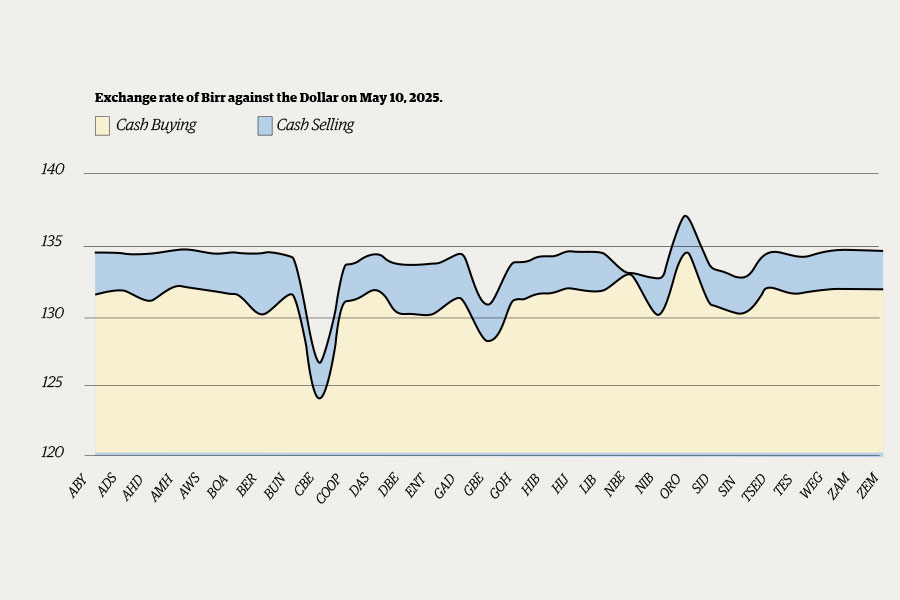
Viewpoints | Apr 13,2019
Mar 26 , 2022
By Bernard Laurendeau
Ethiopia's gig workers should be able to seamlessly sell their services from one centralised platform, such as a gig exchange market, writes Bernard Laurendeau, managing partner at Laurendeau & Associates.
Kenya, with a population of a bit over 50 million, had five million gig workers, according to an assessment issued by Mastercard in 2020. The report further showed that 80pc of gig workers accessed gigs through mobile and 60pc of them joined a digital platform in the last two years.
With Ethiopia’s youthful population quickly reaching 115 million, informal gig workers exist in the millions. Although digital platforms for gig work are only recently emerging, there is a great potential for them to scale to create millions of decent jobs in the next few years.
However, these platforms should not scale in silos. They should come together to accommodate the future of work where gig workers who have different skills want to make themselves available in a way where they control their schedule and decide how far they wish to travel to deliver their services. In other words, in a country like Ethiopia, a female gig worker should be able to provide rides on ZayRide from eight to 11am after she drops her kids at school in the morning, then become a nanny from 11:30am until 1:30pm on Gooday, tutor students from two to 3:30pm using Astegni before she picks up her kids from school at 4pm, then spend her late evening designing graphics for a client she found through Freelance Ethiopia.
In the future, gig workers should be able to seamlessly sell their services from one centralised platform.
What would such a centralised platform look like? Look no further than stock markets.
“When new technologies for information retrieval, dissecting data, payment transfers, graphic displays, and back-office processes emerged, financial institutions built themselves markets that come as close as possible to perfectly frictionless," said Wingham Rowan, a long time advocate for a transformational job market. "A trader at Goldman Sachs or Citi uses software that seamlessly identifies and executes opportunities across multiple exchanges, forces down overheads, and minimises transaction risk while proactively combing for openings to suit current objectives.”
If a trader or investor can access such sophisticated platforms, does a gig worker not deserve a sophisticated labour market?
With very complex labor laws and legacy systems, it might be difficult for western countries to implement such exchanges.
The situation is different for emerging economies. These countries can indeed leapfrog and become trendsetters by designing and implementing bespoke labour exchanges.
Each country has its own idiosyncrasies. It is important to customise the exchange to local laws and design it based on the capabilities of local gig platforms. Nevertheless, the maturity stages of implementation remain the same for any emerging economy.
Ultimately, in its mature stage, the Ethiopian Gig Exchange (EGX) for the gig economy of a whole country would be financed by investors. Like the stock market, investors can win or lose when they invest in impact tokens. The case for Ethiopia here is bright. The foundation is already available.
Existing generic gig platforms in Ethiopia - among others, Gooday, Taskmoby, ShegaMuya, PickPro, Gigs Ethiopia and Fetan - are brought together into an alliance so that an early stage framework on the path to an EGX can be initiated. More platforms focused on delivery, taxi-hailing or logistics (verticals) can be brought into the fold to create a larger framework (horizontally), breaking the silos while allowing each platform to thrive and scale. The framework would then incrementally grow into a super-platform and ultimately into an exchange.
Ethiopia should be setting the trend on top of following. In June 2021, the Ethiopian Parliament approved and enacted a capital markets proclamation. A Capital Market Authority and the Ethiopian Securities Exchange will become operational in 2022 with public-private partnership arrangements.
The coming of a capital market in Ethiopia is of utmost importance not only for large corporations, but also for startups (including that in the Gig Economy) that have the potential to launch an IPO in a few years, creating an exit opportunity for investors. However, this has been a long time coming.
Where Ethiopia could truly trail-blaze and become a trendsetter would be with the establishment of the EGX, an innovative and disruptive way for finally cracking the tough nut of job creation. In Ethiopia, two million individuals enter the labour market each year, which means that the economy needs to create close to eight thousand jobs every business day – a ticking time bomb that the EGX can defuse.
PUBLISHED ON
Mar 26,2022 [ VOL
22 , NO
1143]


Viewpoints | Apr 13,2019

Radar | Sep 28,2019

Commentaries | Jul 03,2021

Agenda | Mar 28,2020

Viewpoints | Jun 08,2024

Fortune News | Sep 10,2021

Fortune News | Apr 08,2019

Money Market Watch | May 24,2025

Featured | Dec 19,2018

Sunday with Eden | Mar 27,2021

My Opinion | 132041 Views | Aug 14,2021

My Opinion | 128437 Views | Aug 21,2021

My Opinion | 126364 Views | Sep 10,2021

My Opinion | 123987 Views | Aug 07,2021





Dec 22 , 2024 . By TIZITA SHEWAFERAW
Charged with transforming colossal state-owned enterprises into modern and competitiv...

Aug 18 , 2024 . By AKSAH ITALO
Although predictable Yonas Zerihun's job in the ride-hailing service is not immune to...

Jul 28 , 2024 . By TIZITA SHEWAFERAW
Unhabitual, perhaps too many, Samuel Gebreyohannes, 38, used to occasionally enjoy a couple of beers at breakfast. However, he recently swit...

Jul 13 , 2024 . By AKSAH ITALO
Investors who rely on tractors, trucks, and field vehicles for commuting, transporting commodities, and f...

Jul 12 , 2025
Political leaders and their policy advisors often promise great leaps forward, yet th...

Jul 5 , 2025
Six years ago, Ethiopia was the darling of international liberal commentators. A year...

Jun 28 , 2025
Meseret Damtie, the assertive auditor general, has never been shy about naming names...

Jun 21 , 2025
A well-worn adage says, “Budget is not destiny, but it is direction.” Examining t...

Jul 13 , 2025 . By YITBAREK GETACHEW
The Addis Abeba City Revenue Bureau has introduced a new directive set to reshape how...

Jul 13 , 2025 . By BEZAWIT HULUAGER
Addis Abeba has approved a record 350 billion Br budget for the 2025/26 fiscal year,...

Jul 13 , 2025 . By RUTH BERHANU
The Addis Abeba Revenue Bureau has scrapped a value-added tax (VAT) on unprocessed ve...

Jul 13 , 2025 . By NAHOM AYELE
Federal lawmakers have finally brought closure to a protracted and contentious tax de...